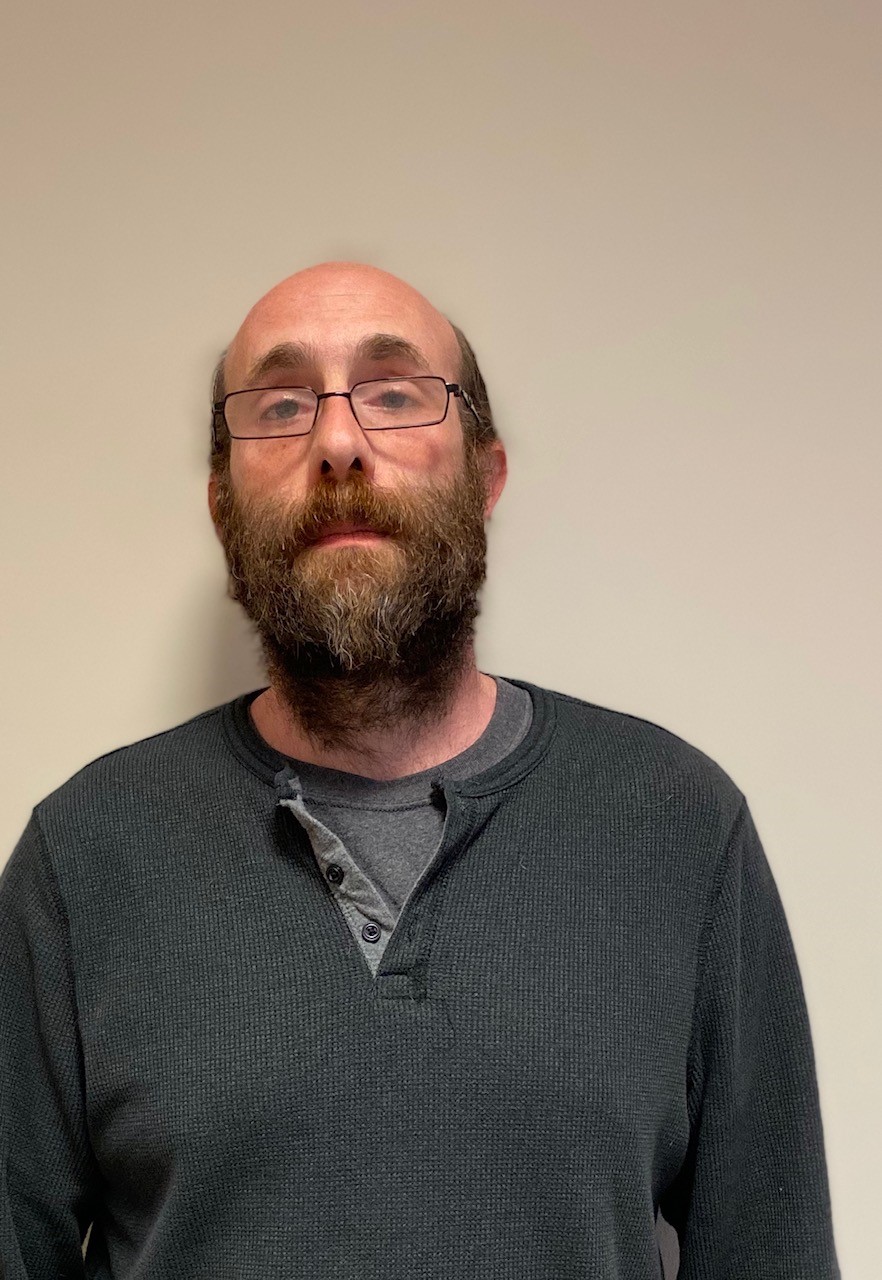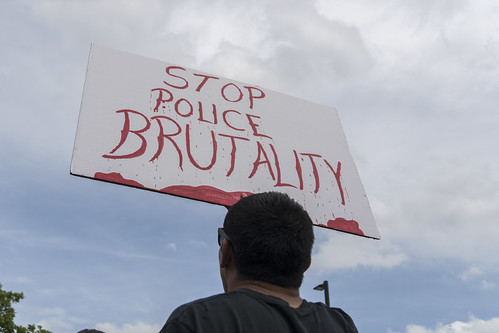Police brutality is excessive and unwarranted use of force by law enforcement. It is also a civil rights violation. It also refers to a situation where an officer exercises undue or excessive force against an individual. Police violence includes physical or verbal harassment, physical or mental injury, property damage, inaction of police officers, and in more and more cases, death.
Major political and social movements have been on the receiving end of excessive force by police, including the civil rights movement of the 1960s, anti-war demonstrations, the War on Drugs, and the Global War on Terrorism. In 2014, the UN Committee against Torture condemned police brutality and excessive use of force by law enforcement in the US, and specifically brought up the "frequent and recurrent police shootings or fatal pursuits of unarmed black individuals".
The United States has developed an infamous reputation for cases of police brutality. The United States has a higher number of officer-involved killings compared to other Western countries. U.S. police killed 1,093 people in 2016 and 1,146 people in 2015. Mass shootings have killed 339 people since 2015, whereas police shootings over the same time span claimed the lives of 4,355 people. An FBI homicide report from 2012 observed that while black people represent 13% of the US population, they amounted to 31% of those killed by police.
Through the Violent Crime Control and Law Enforcement Act of 1994, Section 210402, the U.S. Congress mandated that the attorney general collect data on the use of excessive force by police and publish an annual report from the data. However, the bill lacked strength for enforcement. Also the lack of participation from state and local agencies, the Bureau of Justice Statistics stopped keeping count in March 2014.
2016 the rate of fatal police shootings per million was 10.13 for Native Americans, 6.6 for black people, 3.23 for Hispanics; 2.9 for white people and 1.17 for Asians. In absolute numbers, police kill more white people than any other race or ethnicity, however this must be understood in light of the fact that white people make up the largest proportion of the US population (since racists like to use just numbers and not per capita, but even then, it doesn't bother them that whites are being killed it seems).
In Tennessee v. Garner (1985), the Supreme Court held that "[i]t is not better that all felony suspects die than that they escape," and thus the police use of deadly force against unarmed and non-dangerous suspects is in violation of the Fourth Amendment. Yep, violations of the constitution. And nothing is done about it because of qualified immunity.
Qualified immunity is a legal principle that grants government officials and law enforcement performing discretionary actions immunity from civil cases/charges unless the plaintiff shows that the official violated "clearly established statutory or constitutional rights of which a reasonable person would have known". The U.S. Supreme Court first introduced the qualified immunity doctrine in Pierson v. Ray (1967), a case litigated during the civil rights movement, it is stated to have been introduced with the intent of protecting law enforcement officials from frivolous lawsuits and financial liability in cases where they acted in good faith.
Specifically, qualified immunity protects a government official from lawsuits alleging that the official violated a plaintiff's rights, only allowing suits where officials violated a "clearly established" statutory or constitutional right. When determining whether or not a right was "clearly established," courts consider whether a reasonable official would have known that the defendant's conduct violated the plaintiff's rights. Courts conducting this analysis apply the law that was in force at the time of the alleged violation, not the law in effect when the court considers the case.
Qualified immunity is not immunity from having to pay money damages, but rather immunity from having to go through the costs of a trial at all. Accordingly, courts must resolve qualified immunity issues as early in a case as possible, preferably before discovery (meaning context and facts of the situation are often ignored).
Accountability is an absolute necessity for meaningful criminal justice reform, let alone a credible justice system. This judicial doctrine, invented by (yep, you read that right, it's a made up law handed down from the SCOTUS, technically making it invalid) the Supreme Court in the 1960s, protects state and local officials from liability, even when they act unlawfully, so long as their actions do not violate "clearly established law." In practice, this legal standard is a huge hurdle for civil rights plaintiffs because it generally requires them to identify not just a clear legal rule but a prior case with functionally identical facts.
Although it is nominally an interpretation of our primary federal civil rights statute, that statute says nothing about any immunities, qualified or otherwise. And the common""law background against which it was passed also contained nothing like the across""the""board immunity for public officials that characterizes the doctrine today. Qualified immunity has also been a disaster as a matter of policy. Victims of misconduct are left without any legal remedy simply because there does not happen to be a prior case involving the exact same sort of misconduct. By undermining accountability at a structural level, the doctrine also hurts the law enforcement by denying police the public trust and confidence they need to do their jobs. It's puts officers above the law in a land that says no one is above the law.
The doctrine of qualified immunity is nominally an interpretation of our principal federal civil rights statute, now codified at 42 U.S.C. ???? 1983. Section 1983 was first passed by the Reconstruction Congress as part of the 1871 Ku Klux Klan Act, which itself was part of a series of three Enforcement Acts designed to help combat lawlessness and civil rights violations in the post""war South. Notably, the original version of Section 1983 was passed a mere three years after the adoption of the Fourteenth Amendment and was intended in large part to give teeth to the promise of liberty and equality enshrined in the amendment's provisions.
As currently codified, the statute states: Every person who, under color of any statute, ordinance, regulation, custom, or usage, of any State or Territory or the District of Columbia, subjects, or causes to be subjected, any citizen of the United States or other person within the jurisdiction thereof to the deprivation of any rights, privileges, or immunities secured by the Constitution and laws, shall be liable to the party injured in an action at law, suit in equity, or other proper proceeding for redress. [emphasis added]
Forever ban qualified immunity. As established, it's an invalid law that serves to place officers above the law, violating the constitution.
Americans of all races, ethnicities, ages, classes, and genders have been victims to police brutality. In the late 19th and early 20th centuries, for example, poor and working-class whites grew in frustration over discriminatory policing in northern cities. At the same time, Jewish and other immigrants from southern and eastern Europe also were subject to police brutality against their communities. In the 1920s many urban police departments, especially in large cities, used extralegal tactics against members of Italian-immigrant in efforts to crack down on organized crime. In 1943 officers of the Los Angeles Police Department were complicit in attacks on Mexican Americans by U.S. servicemen during the so-called Zoot Suit Riots. Regular harassment of homosexuals and transgender persons by police in New York City culminated in 1969 in the Stonewall riots, which was caused by a police raid on a gay bar; the protests marked the beginning of a new era of militancy in the gay rights movement. And in after of the 2001 September 11 attacks, Muslim Americans began to be on the receiving end of police brutality, including harassment and racial profiling. Many local law-enforcement agencies launched operations of questionable legality designed to surveil and infiltrate mosques and other Muslim American organizations in an effort to uncover assumed terrorists, a practice that went unchecked for at least a decade.
(Note: You can view every article as one long page if you sign up as an Advocate Member, or higher).






